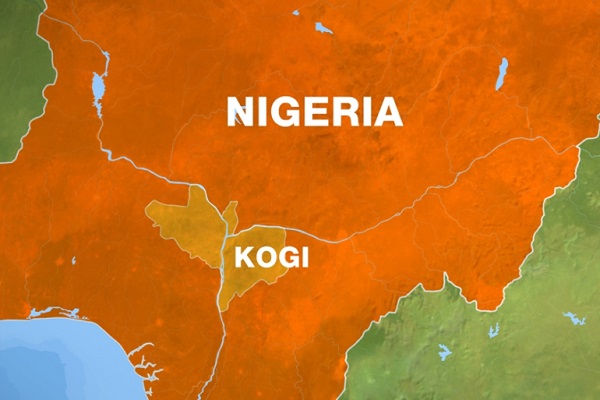
By Tajudeen Kareem and Maureen Chigbo
No fewer than 2.3 million Nigerians registered their preparedness to receive the AstraZeneca coronavirus vaccine jab within 48 hours of the registration of the e-portal in the first week of March as Nigeria received samples. Their enthusiasm was at variance with the initial scepticism that visited the idea of the vaccines in Nigeria.
A survey of 1100 Nigerians between October and November 2020 by the Edelman Trust Barometer 2021 found that vaccine hesitancy was a high 59 per cent in Nigeria. Reluctance was 64 per cent globally. Hesitancy combined with a low trust environment where only 24 per cent of Nigerians believe in government and trust overall is at 49 per cent.
Proactive communication and reaching persons at the grassroots made a difference in changing Nigerians’ attitude to the vaccine.
Experts and manufacturers rolled out the vaccine in December 2020 globally. It came one year into the devastation the virus first spotted in Wuhan, China wrought on the world. The rollout happened rapidly in China, Europe and the United States of America, among other countries.
Nigeria secured four million doses of the AstraZeneca brand from India, courtesy of the Covax Facility. It arrived in Nigeria on 2 March 2021. The government and citizens alike were excited.
Before the vaccine’s arrival, the Presidential Task Force on COVID-19, PTF, worked assiduously to prepare Nigerians to accept the vaccine despite a few misguided comments on its safety and efficacy. Secretary to the Government of the Federation, Boss Mustapha led the PTF to collaborate with other agencies to prepare the grounds.
PTF understood the public’s genuine scepticism about the new vaccine and their resistance and undertook the daunting task of reversing such perception many weeks before its arrival in the country. It directly sent out messages to counter the negative perceptions of the vaccine’s safety and efficacy and that it has no adverse effect on recipients. In charge of the vaccination programme in the country, the National Primary Healthcare Development Agency engaged in sensitisation and awareness programmes to correct the negative perception. It reached out to critical stakeholders, especially traditional rulers and leaders of major religions, to accept and convince their subjects and brethren on the vaccine’s safety.
These efforts must have yielded fruits. Nigerians welcomed the arrival of the vaccine with great enthusiasm. Moreso, the top-bottom approach vaccination strategy adopted by the PTF for administering the vaccine has helped build confidence in the masses that there will not be any adverse effect.
The phased distribution to the States began with the vaccination of all frontline health workers, supporting staff and strategic leaders. As a mark of leadership and confidence building, President Muhammed Buhari and Vice President Yemi Osinbajo were vaccinated in the glare of television camerasbefore the members of the PTF and some journalists took their turn.
So far,the vaccine distributionacross the 36 States is on course with no noticeable hitches. By 8 March 2021, about 33 states and the FCT had taken delivery. It is noteworthy that the PTF has mapped out the deployment of vaccines to the States based on assessing their level of preparedness.
Some of the parameters used for the assessment include adequate maintenance of their cold chain storage facilities, proper preparation of logistic transportation to the ward/ health facility, sufficient security in place during transport and at vaccination sites, completion of training of health workers, efficient social mobilisation activities, and adherence to the protocol for vaccine deployment.
It is equally encouraging that the PTF will be working with the private sector-led CACOVID, which has provided a cargo plane to transport the vaccines to all local airports across the country. States without a functional airport, according to the PTF, will have their vaccines transported by road using vans with fitted Cold Cabins from the nearest airport. They will store the vaccines at the State Cold Stores, from where they will transport them by road to LGA Cold Stores.
The PTF also plans to monitor activities once the vaccines are in the States strictly. PTF would work with the Federal Ministry of Health, NPHCDA and independent bodies such as the Economic and Financial Crimes Commission, Department of State Security, Independent Corrupt Practices Commission and Civil Society Organizations. The PTF would ensure compliance by States/health facilities/health workers and sanction defaulters who deviate from the standard protocol and guidelines for the vaccination programme.
The PTF plans to ensure the vaccination of about 70 percent of the population n the next phase. The plan involves vaccination of the elderly from 50 years and above. There are two sub-groups; the vaccination of persons 60 and above first, followed by 50 – 59years. Eligible citizenswho have not registered electronically, PTF says, would be assisted at the designated health facility to ensure a seamless exercise.
The third phase of the vaccination process will take care of those between 18- 49years with co-morbidities (such as hypertension, diabetes, lung disease, other heart diseases, liver or renal disease). Immunisation of individuals ages 50 and above with co-morbidities would happen with their age groups.
The fourth phase would involve vaccination of the rest of the eligible population between 18-49years.
It is worthy to note that the authorities would assess the level of preparedness of the States before deploying vaccines at each stage. The Federal Government assures that it has placed accountability measures to ensure strict compliance with the vaccination process. Their health providers will evaluate pregnant women to weigh the benefit versus risk.
Another significant development in the vaccination programme of the PTF for the country is the bid for vaccine production in Nigeria. In the first week of March, the Central Bank of Nigeria gave outN253.4million in grants to sundry researchers under the Healthcare Sector Research and Development Intervention Scheme, HSRDIS. The grant is part of measures to support the Nigerian healthcare sector’s growth and,significantly,develop a Nigerian-produced vaccine against coronavirus.
It is not surprising that Mustapha commended the CBN for what he described as the bank’s modest efforts at helping future generations to combat any outbreak of health pandemic. Beforethen, the SGF and chairman of the PTF continues to assure Nigerians that the COVID-19 vaccines now in the country “are safe and efficacious”. He has continually urged members of the public to avail themselves of the opportunity to get vaccinated.
Indeed,the well-thought-out programme for vaccination of Nigerians, part of the National Response Strategy to combat COVID-19, is commendable. Experts advise that the PTF leave nothing to chance and closely follow up the vaccination process, especially at the sub-national levels. The measure would ensure the effective and efficient distribution of the vaccine among the populace.
*Kareem and Chigbo are ONLINE Publishers.



